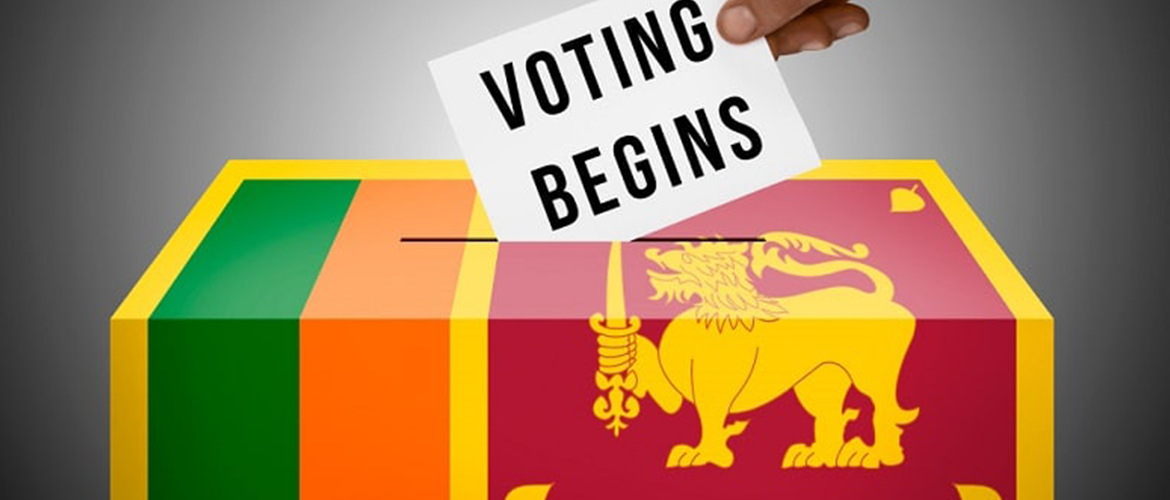Sri Lanka Elections: Vote for Stability
August 31, 2020 | Expert Insights
The Rajpaksa Brothers have clearly shown that they enjoy widespread support amidst not only the majority Sinhala voters but also surprisingly the minority communities, albeit grudgingly. At least this is what can be inferred from the results of the recently concluded parliamentary elections, nine months after their 52 percent victory in the presidential election spearheaded by Gotabaya. In the recently held parliamentary elections, Mahinda led their Sri Lanka Podujana Peramuna (SLPP) party to a thumping 145 seat victory, missing two-third majority by a slim margin of five.
The United National Party (UNP), weakened by factionalism, managed to get only one seat. Its breakaway offshoot, the Samagi Jana Balawegaya (SIB) under Sajith Premadasa emerged the main opposition with 54 seats. The Tamil National Alliance (TNA), traditionally a favourite in the North and NE with the Tamil minorities, fared rather poorly with only ten seats.
The SLPP’s vote share was 59 percent followed by that of SIB which garnered about 23 percent of the votes.
THE EXPECTATIONS
Both Gotabaya and Mahinda represent the new breed of bold leaders who are riding a popular wave of extreme nationalism wave sweeping the world, from America to Brazil to India and beyond. Together, they are credited with crushing the Tamil insurgency despite the numerous charges of gross human rights violations reported by international agencies. There are also allegations of targeting political rivals, journalists and others.
The minority Tamils and the Muslims are apprehensive, more so after last year's Easter bombings which led to anti-Muslim riots. The Sinhala majority and the all-powerful Buddhist monks continue to be their main supporters for obvious reasons. Although the shine from their security-oriented approach, so popular with their main backers, was taken off by the synchronised wave of bombing inflicted by homegrown Islamic radicals despite very credible intelligence provided well in time by India.
The SLPP can claim credit for managing the COVID pandemic rather well and keeping the outbreak within the limited resources of the public health care system. From a high of 256 daily infections on 10 July, the infection rate has come to single figures in August. Fewer than 3000 people were affected out of which only 11 died.
In these trying times of COVID 19, when Sri Lanka's largely export and tourist-oriented economy is badly suffering, the expectations of the people from the duo would be a reasonably quick economic recovery. Giving them a solid mandate to affect the recovery could have been the main motivating factor for the voting trends in their favour. Tourism, which is about 5 percent of the economy, witnessed a massive drop of 70 percent. Sri Lanka expatriates provide a large chunk of foreign earning which also lagged with their remittances reducing by about 14 percent. As the pandemic spread and panic spread in foreign investors, Sri Lanka saw an outflow of over $260 million and a run on its small stock market of over $ 6 million.
After their win in the Presidential elections, the Rajpaksas’ had declared their intent to repeal some articles of the 19th Amendment, which reduced the powers of the Executive Presidency in force since 1978 and increased those of the prime minister. After the parliamentary elections, a government minister, Vasudewa Nanayakkara stated, “At the moment, we may have to go for a few temporary changes. The hope as I believe is to have a new republican constitution. “
THE REGIONAL DILEMMA
This is where things get interesting for India because the economic salvation in these trying times can come from only one direction-China. In 2017, the then Prime Minister Ranil Wickremsinghe had signed the $1.2 billion deal with China Merchants Port Holdings Company for an 85 percent share of the Hambantota port for 99 years. Sri Lankans claim that the first offer for developing this strategically located port was to India, which declined.
India was assured that the port would be used only for civilian purposes and the Wickremsinghe government had denied permission to Chinese submarines to dock in their ports. The Rajpaksa administration has over the years banked heavily on Chinese investments for infrastructure projects, and under their watch, PLAN submarines have been utilising the services of Sri Lanka ports.
India has largely maintained a low profile in its dealings with Sri Lanka even though its support behind the scenes can be called critical in the crushing military victory of the Rajpaksa brothers over the LTTE. India and Sri Lanka have during the pandemic come together to secure a $ 400 million arrangement through SAARC, and a further $1.1 billion currency swap facility is under discussion. While conveying his congratulations on their victory, PM Modi admired the manner in which the electoral exercise was flawlessly conducted under the clouds of the pandemic. This could also be a pointer towards India’s own desire to conduct assembly elections in the important state of Bihar.
ASSESSMENT
- Faced with the spectre of economic ruin, ethnic affiliations have been overridden by the educated masses of Sri Lanka, and the majority vote to SLPP is a show of hands for political stability to facilitate economic recovery. It is now for the Rajpaksa brothers to respect and understand the realities of the massive mandate and work towards greater reconciliation through economic recovery, which can be shared by all communities.
- India’s concern would be that at a time when it is already entangled with the PLA in the high Himalayas, it needs the friendship (at least the strict neutrality) of its immediate neighbours. It would not be comfortable if PLAN starts knocking at its back door through port facilities in Sri Lanka and thus pose a threat to Indian security interests in the IOR.



Comments